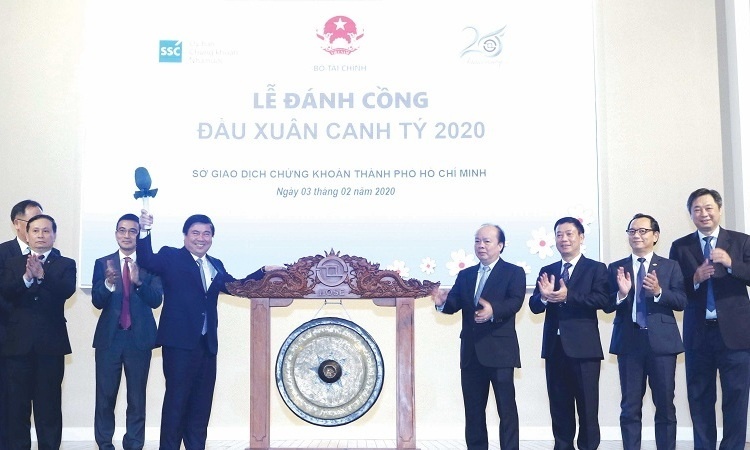Doanh Nhan Sai Gon quoted experts as predicting that SBV, like other central banks, would continue loosening monetary policy in order to support economic growth and cope with geopolitical risks, as well as overcome the unforeseen nCoV outbreak.

The VN Index dropped by tens of points in the first trading sessions of the Year of the Rat because of coronavirus.
The 14 percent credit growth rate has been set for 2020, but they believe that the central bank may adjust the figure and expand credit to support the economy.
After a lot of cuts in the last months of 2019, the interest rates are expected to be stable in 2020, or continue to decrease slightly to help businesses overcome the increasingly high risks. SBV may decide to slash the prime interest rates and make capital cheaper for commercial banks.
| The monetary policy loosening will also have positive impact on the banking operation. Commercial banks are believed to continue seeing stable growth in 2020, following a good performance in the last three years. |
The monetary policy loosening will also have positive impact on the banking operation. Commercial banks are believed to continue seeing stable growth in 2020, following a good performance in the last three years.
Along with the increasingly expanded credit scale, profitability ratio improvement thanks to lower capital mobilization cost and the progress in bad debt settlement, the proportion of banks’ revenue from services in total revenue has increased thanks to the launch of new products such as bancassurance and digital banking products.
After successfully increasing chartered capital, banks now can improve their financial strength and risk management capability, while they have more more capital for business.
Most recently, three out of the ‘big four’, namely Vietcombank, VietinBank and Agribank, have committed to continue increasing their capital this year. Prior to that, BIDV successfully raised its capital in late 2019 after a huge share sale deal to a foreign investor.
The new monetary policy, together with the low interest rates, will not only support the business circle, but also help maintain the purchasing power of the private sector, thus making a big contribution to economic growth and ensuring the government’s capability of mobilizing capital at low costs through the bond market.
In 2019, the government bond yield decreased to a record low and is believed to continue this year. If so, the government would be able to expand the fiscal policy again.
Meanwhile, the stock market would also get benefits from the monetary policy loosening, though the VN Index dropped by tens of points in the first trading sessions of the Year of the Rat because of coronavirus.
In the latest news, Deputy Governor Dao Minh Tu has told commercial banks not to raise interest rates, including deposit interest rates, affirming that liquidity is strong and capital shortage doesn’t exist.
Linh Ha

Vietnam’s stock market turns 20 years old in 2020
Despite its young age, the Vietnamese stock market has made great contributions to economic development in the last 20 years.

Vietnam’s stock market overreact to nCoV outbreak
Chair of the State Securities Commission (SSC) Tran Van Dung commented that the investors have ‘overreacted’ to the nCoV outbreak, believing that the market will recover when the epidemic peaks, as it happened with SARS and H5N1.
 In the first days of the Year of the Rat, the economy has been experiencing unfavorable conditions because of the coronavirus outbreak, originating from Wuhan City, China.
In the first days of the Year of the Rat, the economy has been experiencing unfavorable conditions because of the coronavirus outbreak, originating from Wuhan City, China.